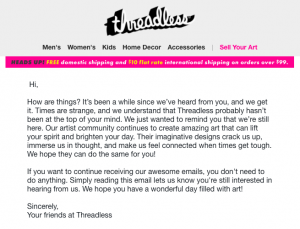By Kent Wakely, Published November 2, 2014
Agencies aren’t turnkey solutions — they need your input and cooperation. You’d be crazy to set and forget everything anyway: inbound marketing is all about increasing your bottom line. So, what do you need to get the ball rolling?
Honest, Transparent, and Complete Communication
In any organization, the communication between management and employees, between departments, and between companies and their hired agencies and firms is critical. Nothing happens without clear communications; in fact, things backfire without it.
Everyone needs to lay all their cards down on the table. The key is honest, transparent, and complete communication. You need a trifecta; nothing less.
Okay, so communication is an encompassing facet in your relationship with your inbound marketing agency. But what particular factors of your partnership should be established from the get-go?

Do your own internal audit
Your inbound marketing agency will perform their own audits aligned to the activities for which you’re paying them (inbound is a vast field — they’ll audit for content, optimization, and a few other things). That doesn’t mean, however, that you should let them have all the fun.
You may not be an expert in onpage or conversion optimization, but you know your business. Perform a simple audit of your website and its existing structure and cross-reference this to what you want your online presence to eventually become. Perform an audit of your market research and send over all pertinent data to your agency. Audit your developed marketing messaging and branding traits and let your agency have all the information.
From these bits and pieces, your agency will be able to put together a coherent whole.
Define your business model
Your inbound marketing agency will need to know precisely how you make money, how you intend to gain customers, and how you want to retain them. Any other residual or secondary streams of revenue might need to be taken into account as well.
Your inbound marketing agency will be aligning all their efforts towards a bottom line. Their efforts and your business model need to be developed for the online space parallel to each other, to ensure one-touch resolution — you wouldn’t have to fail at something and start over again.
Lay-out your business objectives
Once you’ve shared your business model, lay down your immediate and long term business objectives and how you want inbound marketing to play a role in them. Outline all your relevant business objectives, even if you don’t think inbound may be of any assistance, as your agency will let you know if they otherwise can.
With your agency’s help, you can then transform your business objectives into marketing goals, set benchmarks and performance metrics, and agree on key performance indicators. It takes two to tango, and this part of your arrangement only works if you move to the beat together.
This part is integral in determining important facets of your partnership like service level agreements, deliverables, and quality assurance. If each partner does their job in the tango, it’ll be flawless.
Remember to always keep communication lines open — more than open, really: honest, transparent, and complete. Your inbound marketing agency’s success is your success, and with open communications as your foundations, you can lay down the pillars they need to build your inbound empire. Give them all the audits and information necessary, provide them with a solid understanding of your business model, and finally, help them transform your business objectives into marketing goals.
Business Articles | Business 2 Community
(327)






